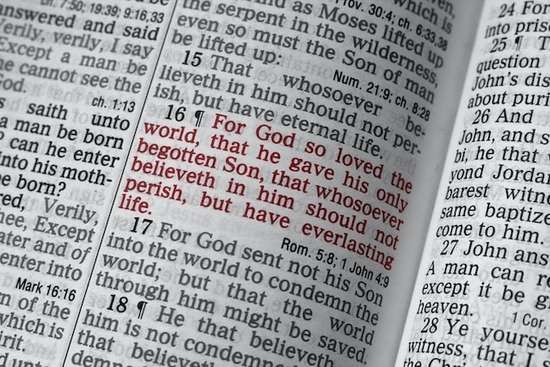Seventh-day Adventists believe that Jesus is fully God as one of the members of the Trinity together with God the Father and the Holy Spirit. He plays a central role in it.
We believe that while Jesus is fully God, He also came to this earth as a human infant (Luke 1:30–33), who then grew to adulthood and lived and died as a human being like us (Philippians 2:5–8).
To help you understand these two key aspects of Jesus, we’ll cover:
- Jesus’ divinity
- What it means for Jesus to be God’s “only begotten son”
- Why His divinity matters
- Jesus’ humanity
- Why He came to earth
- Why His humanity and divinity are still relevant today
The full humanity and full divinity of Jesus are crucial to the Adventist understanding of who God is, how much He loves us, and how the plan of salvation works.
Here is the official statement on this belief as found on the church’s website:
God the eternal Son became incarnate in Jesus Christ.
Through Him all things were created, the character of God is revealed, the salvation of humanity is accomplished, and the world is judged.
Forever truly God, He became also truly human, Jesus the Christ. He was conceived of the Holy Spirit and born of the virgin Mary. He lived and experienced temptation as a human being, but perfectly exemplified the righteousness and love of God. By His miracles He manifested God’s power and was attested as God’s promised Messiah.
He suffered and died voluntarily on the cross for our sins and in our place, was raised from the dead, and ascended to heaven to minister in the heavenly sanctuary in our behalf. He will come again in glory for the final deliverance of His people and the restoration of all things.”
Let’s dive in for more detail.
Jesus Christ is fully divine
The Bible teaches that Jesus is God (John 1:1), and for Adventist Christians, the Bible and the Bible alone is the source of all our teachings and practices (2 Timothy 3:16).
We find evidence for the divine nature of Christ even in the Old Testament.

Photo by Pro Church Media on Unsplash
In one of the most famous messianic prophecies (referring to Jesus as the Messiah), the prophet Isaiah wrote:
“Therefore the Lord Himself will give you a sign: Behold, the virgin shall conceive and bear a Son, and shall call His name Immanuel” (Isaiah 7:14, NKJV).
The name Immanuel means “God with us.” Here we find one of the first mentions of God being born into humanity.
Many centuries later, the New Testament refers right back to this Old Testament text:
“Behold, the virgin shall be with child, and bear a Son, and they shall call His name Immanuel, which is translated, ‘God with us’” (Matthew 1:23, NKJV).
Right from the start in the New Testament, Jesus is referred to as God—even as an infant.
In fact, the common Greek word for God in the New Testament is theos. This is where the word theology, which means the study of God, comes from. And many times, Jesus is referred to in the Bible as theos.
For example, when Thomas—who was known as “Doubting Thomas”—finally recognized the resurrected Jesus, he cried out to Him, “My Lord and my God [theos]” (John 20:24–28, NKJV)! A direct reference to Jesus as God.
The apostle Paul wrote:
“According to the flesh, Christ came, who is over all, the eternally blessed God [theos]. Amen” (Romans 9:5, NKJV).
Paul even quotes the Old Testament in Hebrews 1:8, which also refers to the Son as God:
“But to the Son He says: ‘Your throne, O God [theos], is forever and ever’” (NKJV).
This equates Jesus with God Himself.
The apostle Peter also comments on Jesus as God:
“Simon Peter, a bondservant and apostle of Jesus Christ, to those who have obtained like precious faith with us by the righteousness of our God [theos] and Savior Jesus Christ” (2 Peter 1:1, NKJV).
Jesus is God and Savior. In fact, the only reason He could even be our Savior is that He is God.
Did Jesus ever call Himself God?

Photo by Tim Wildsmith on Unsplash
In many places in the New Testament, Jesus uses the phrase “I Am” in ways that recall the name used by God to refer to Himself when speaking to Moses and the Israelites.1
Paul Peterson, a professor of the New Testament at Andrews University, notes:
“Several of the other claims Jesus made when He used the phrase ‘I Am . . .’ imply a very high degree of authority that normally belongs only to God. Jesus is ‘the way, and the truth, and the life. No one comes to the Father except through’ Him (John 14:6). He is ‘the resurrection and the life’ (John 11:25) and ‘the bread of life’ (John 6:48).”2
One of the most dramatic examples of this use was when Jesus was in a discussion with the religious leaders. Jesus said:
“Your father Abraham rejoiced to see My day, and he saw it and was glad. Then the Jews said to Him, ‘You are not yet 50 years old, and have You seen Abraham?’” (John 8:56–57, NKJV).
How did Jesus respond?
“Jesus said to them, ‘Most assuredly, I say to you, before Abraham was, I AM’” (John 8:58, NKJV).
In English, the phrase “I am” seems pretty simple. But the reaction of the religious leaders says everything:
“Then they took up stones to throw at Him” (John 8:59, NKJV).
Why would they have wanted to kill Jesus unless they believed He was making Himself out to be God? He said only “I AM,” and they understood this as Jesus referring to Himself as God, the eternal God who spoke to Moses out of the burning bush.
Back in the Old Testament, when God was telling Moses he would be the one to lead the Hebrew people out of Egypt, He used the phrase “I AM”:
“Indeed, when I come to the children of Israel and say to them, ‘The God of your fathers has sent me to you,’ and they say to me, ‘What is His name?’ what shall I say to them?” (Exodus 3:13, NKJV).
“And God said to Moses, ‘I AM WHO I AM.’ And He said, ‘Thus you shall say to the children of Israel. I AM has sent me to you’” (Exodus 3:14, NKJV).
Another instance where Jesus calls Himself God is in Revelation.
Revelation 1:8 reads:
“‘I am the Alpha and the Omega, the Beginning and the End,’ says the Lord, ‘who is and who was and who is to come, the Almighty’” (NKJV).
This is the Lord, the “Almighty,” referring to Himself as the “Alpha and the Omega, the Beginning and the End.”
Later on in Revelation 22:13, Jesus also says:
“I am the Alpha and the Omega, the Beginning and the End, the First and the Last” (NKJV).
In other words, Jesus is saying, “I am God.”
And if God is our creator, is Jesus also?
Is Jesus the creator?
While God the Father is commonly (and correctly) referred to as the creator, so was Jesus, His Son (John 1:1–5).
(And so was the Holy Spirit, because all three persons of the Trinity were involved.)
Notice the use of plural pronouns in the Creation account:
“Then God said, ‘Let us make man in our image, after our likeness’” (Genesis 1:26, NKJV).
There are a few more passages of Scripture that have both God the Father and God the Son in the role of creator:
“God, who at various times and in various ways spoke in time past to the fathers by the prophets, has in these last days spoken to us by His Son, whom He has appointed heir of all things, through whom also He made the worlds” (Hebrews 1:1–2, NKJV).
“In the beginning was the Word, and the Word was with God, and the Word was God. He was in the beginning with God. All things were made through Him, and without Him nothing was made that was made” (John 1:1–3, NKJV).
All the Greek terms for God used in these examples come from theos. John even explicitly says that the “Word was God [theos].” (John 1:14 clearly identifies the Word as the one who became human flesh and blood.)
The text also says that “all things were made through Him, and without Him nothing was made that was made” (John 1:3, NKJV).
So, anything that “was made”—anything that once didn’t exist but then came into existence—did so only through Jesus. For this to be true, Jesus must have always existed.
But if that is the case, why does God the Father call Jesus His Son?
What does it mean for Jesus to be God’s “only begotten Son”?

Photo by wisconsinpictures on Unsplash
Because the Bible is clear that Jesus as God has always existed, His title as “the Son of God” or “only begotten Son” refers to His role in fulfilling God’s special promise of salvation to His people, similar to Isaac being Abraham’s “only begotten son” (Hebrews 11:17-18).
The Bible text that calls Jesus “God’s only begotten Son” is the famous verse, John 3:16:
“For God so loved the world that He gave His only begotten Son, that whoever believes in Him should not perish but have everlasting life” (NKJV).
The phrase “only begotten son” certainly sounds as though Jesus came after or from the Father, doesn’t it?
Here is where a bit of knowledge of the original language is helpful.
The Greek word, monogenes, translated in the KJV, NKJV, and NASB as “only begotten,” isn’t referring to birth or generation.
Instead, the term means “one of a kind” or “unique.”
It’s about the nature of something, not about its creation. Mono in Greek means “one,” such as one God, and genes means “kind” or “type.” Together, they mean “one of a kind.”
The correct translation appears in other versions like the following:
“For this is the way God loved the world: He gave His one and only Son” (NET).
“For God so loved the world that He gave His one and only Son” (NIV).
“For God so loved the world, that He gave His only Son” (ESV).
For another example, let’s look at Hebrews 11:17:
“By faith Abraham, when he was tested, offered up Isaac, and he who had received the promises offered up his only begotten son [from monogenes]” (NKJV).
Only begotten son? But Abraham had another son, Ishmael. And then later he had even more sons (Genesis 25:1–4).
So how could Isaac have been his only begotten, as in the only son he bore?
He couldn’t, and he wasn’t. The emphasis here was on the unique status of Isaac. He was the son—the only son—who would be heir of the covenant promises made to Abraham (Genesis 17:19).
The idea of Jesus as “the only begotten Son” implies His unique role as God’s Son in the plan of salvation. He fulfills God’s covenant promise to us to send a Redeemer (Genesis 3:15). It has nothing to do with His origins.
His origin, as discussed earlier, is from eternity, even before the creation of the world. And like the Father, He’s eternally divine.
Why Christ’s divinity matters

Photo by Aaron Burden on Unsplash
The divinity of Christ means that God Himself, not some lower creation, died on the cross for us. And He did this so that as sinners, we could have the promise of eternal life with Him.
This great significance is expressed in verses such as the following:
“But God demonstrates His own love toward us, in that while we were still sinners, Christ died for us” (Romans 5:8, NKJV).
“This is a faithful saying and worthy of all acceptance, that Christ Jesus came into the world to save sinners, of whom I am chief” (1 Timothy 1:15, NKJV).
It further demonstrates God’s great love for humanity:
“He who did not spare His own Son, but delivered Him up for us all, how shall He not with Him also freely give us all things?” (Romans 8:23, NKJV).
It would have been an infinite humiliation for Him to have merely become a human being. But to offer Himself as a sacrifice for us when He had done no wrong? When He succeeded where we failed? It’s incredible to think about the God of the universe loving us that much.
Adventists see the beauty of this love that emanates from the life and sacrifice of Jesus.
Now, let’s uncover more about His humanity.
Jesus was fully human
Adventists believe that though Jesus Christ was fully God, He was also fully human.
But how could that be?
We don’t understand.
Just like we also don’t understand why the law of gravity works as it does. But our lack of understanding about how gravity works hardly means it doesn’t work.
And just like we can’t fully understand gravity, there are many things that we may not fully understand about our world and about the God who created it all. That’s the case when it comes to the nature of Jesus as both God and man.
Along with the deity of Christ, Scripture affirms Jesus’ humanity.
Several Bible verses in both the Old and New Testaments of the Bible refer to the Lord Jesus Christ as the Son of Man, pointing to His humanity (Daniel 7:13; Luke 21:27).
The Bible shows that though Jesus was always God, He wasn’t always human. He took on human form and was born among us in lowly circumstances (Luke 2:7).
He grew and learned as we do (Luke 2: 52); He had siblings as we often do (Mark 6:3); He wept as humans weep (John 11:35); He got tired like we do (John 4:6); He was tempted as humans are tempted. The only difference was that He never sinned (Hebrews 4:15).
Christ’s humanity was powerfully tested in the wilderness when the devil sought to take advantage of Him and tempt Him after He was hungry and weak from 40 days of fasting (Matthew 4:1–10).
What’s important to note is that Jesus was tempted as a human being. He had flesh, bones, blood, hormones, emotions, and desires. He was human. And yet in His humanity, Jesus didn’t submit to the temptation.
He used the Word of God as His defense against giving in and sinning.
For example, when the devil sought to make Him doubt His status as the Son of God, Jesus replied, “It is written, ‘Man shall not live by bread alone, but by every word that proceeds from the mouth of God’” (Matthew 4:4, NKJV).
Not only did He overcome the temptations, He also showed us how we as humans can overcome too.
As a human, Jesus did not use any advantages of His divinity since we humans would not be able to do that. He relied completely on God the Father and the Holy Spirit, just the way we should.
Here are some more texts about the humanity of Jesus:
“Inasmuch then as the children have partaken of flesh and blood, He Himself likewise shared in the same, that through death He might destroy him who had the power of death, that is, the devil” (Hebrews 2:14, NKJV).
“Therefore, He had to be like His brothers and sisters in every way, so that He could become a merciful and faithful high priest in matters pertaining to God, to make atonement for the sins of the people.” (Hebrews 2:17, ESV).
“For there is one God and one mediator between God and men, the man Christ Jesus” (1 Timothy 2:5, NKJV).
So you may wonder, if He was God just like the Father, why did He come to the world to become human? And why only Him, and not any other member of the Godhead?
We’ll explore that next.
Why did Jesus come to earth instead of God the Father?
Christians believe Jesus came to earth for two reasons:
- To live a sinless life so He would be worthy to sacrifice His life for us
- To be our example
He came to be our perfect example of what it means to live a life of faith and obedience.
As a human, He experienced the same struggles and temptations we all do. The difference is He did not succumb to these temptations. He lived in full submission to the will of God the Father and gives us the power to do the same.
Here’s another way to think of Jesus as our example:
Almost all societies have relationships that involve authority—parent/child, employee/employer, etc.
Similarly, God calls us to be His children and heirs together with Jesus.3 And Jesus, as the Son of God, came to teach us to be just that—loving and obedient children of God.
With this understanding, take a look at the following texts which show Jesus’ obedience to the Father.
“Or do you think that I cannot now pray to My Father, and He will provide Me with more than twelve legions of angels?” (Matthew 26:53, NKJV).
“He went a little farther and fell on His face, and prayed, saying, ‘O My Father, if it is possible, let this cup pass from Me; nevertheless, not as I will, but as You will’” (Matthew 26:39, NKJV).
“For I have come down from heaven, not to do My own will, but the will of Him who sent Me” (John 6:38, NKJV).
Quoting Psalms 40:7, Paul refers to how Jesus came to earth to fulfill Old Testament prophecies about Him being our Savior and to obey the will of His Father:
“Therefore, as He was coming into the world, He said: You did not desire sacrifice and offering, but You prepared a body for Me. You did not delight in whole burnt offerings and sin offerings. Then I said, ‘See—it is written about Me in the scroll—I have come to do Your will, God’” (Hebrews 10:5–7, ESV).
In His role as our Savior, substitute, and example, Jesus lived in perfect harmony with the Father, showing us how to do the same.
More next on how Jesus’ divinity and humanity affect us personally.
Why Jesus Christ’s divinity and humanity is still relevant today

Photo by Nico Ehmann on Unsplash
Jesus’ humanity is the key link between God and us. And His divinity links us to heaven.
Together, between Christ’s deity and humanity, we have the assurance of God’s nearness and understanding of what we are going through. And that is because God Himself experienced the woes, temptations, and suffering in the person of Jesus.
Jesus came in human flesh, as a human being, to be both our perfect substitute and our perfect example.
He was the only human to live without sin. Which is why He alone could be our substitute and die on the cross to provide us with His perfect righteousness (Hebrews 4:15).
This is key to the plan of salvation.
We as human beings have sinned, and, as a result, face the penalty of death. We deserve it. As the Bible puts it, “The wages of sin is death” (Romans 6:23, NKJV).
But because Jesus came down and lived as one of us, He tasted death for us:
“But we see Jesus, who was made a little lower than the angels, for the suffering of death crowned with glory and honor, that He, by the grace of God, might taste death for everyone” (Hebrews 2:9, NKJV).
And He is our example because He showed us what it means to live by faith. John made it plain that we are to follow Jesus’ example when he wrote:
“He who says he abides in Him ought himself also to walk just as He walked” (1 John 2:6, NKJV).
In fact, in the final deceptions of the last days, God’s people are depicted as those who “keep the commandments of God and have the faith of Jesus” (Revelation 14:12, NKJV).
They will have a faith that reflects the faith of Jesus—the faith that enables them to keep God’s law of love. Just like Jesus did.
To get more glimpses of Jesus,
Choose an Online Bible Study
Want to keep learning? Find out more about Jesus, humanity, the plan of salvation, and how God loves you enough to sacrifice everything, just to give you a chance to choose Him.
Sometimes it can be hard to know where to start, that’s why we offer free, user-friendly, online Bible study options you can do anytime, anywhere, and at your own pace.
This online Bible school will take you through the major themes of Scripture, breaking down the Bible’s complex concepts into bite-sized pieces, which can lead you toward the answers of life’s more challenging questions.
More Answers
Adventist Beliefs
Learn how the 28 Fundamental Beliefs summarize and describe Seventh-day Adventism. They are not a checklist of requirements; instead they show how Adventists interpret and apply Scripture.
What Do Adventists Believe About the Authority of the Bible?
Learn how one really old book (the Bible) is the sole foundation for all Seventh-day Adventist beliefs.
Is the Soul Immortal? Exploring What Adventists Believe
Based on the way the Bible describes humanity in comparison to God and angels, Seventh-day Adventists believe souls are not something you have, but something you are.
What Do Adventists Believe About the Mark of the Beast and 666?
It’s a popular topic, especially during tumultuous times. When everything around you feels chaotic, it’s easy to wonder about the end of the world, and topics like the mark of the beast, as mentioned in Revelation 13, can stir up uneasiness.
What Do Adventists Believe About the Atonement?
If you’ve spent much time in the Bible books of Leviticus or Numbers, you might’ve noticed the word atonement.
Do Seventh-day Adventists Believe Only They Will Go to Heaven?
No, Adventists definitely don’t believe they’re the only ones that will go to heaven. As a matter of fact, we don’t believe admittance into heaven is ever based on which church or denomination we belong to. People all over the world from different Christian denominations, religions, and walks of life will be welcomed by Jesus.
How Adventists Developed the Sanctuary Doctrine and What It Means
The sanctuary was a building at the center of ancient Israelite society that gives us a small picture of the original sanctuary, God’s throne room in heaven (Hebrews 8:1-2).
What Do Adventists Believe About Faith and Works?
Adventists believe we are saved by faith, which is the belief and trust we have in Jesus to save us from our sins. Jesus, then, enables us to live in harmony with God’s commandments and serve others with love—sometimes referred to as “works.”
Do Seventh-day Adventists Believe in Hell?
Seventh-day Adventists believe that any human being who accepts God’s free gift of salvation through Jesus will be given eternal life. But what about the eternal fate of those who choose not to accept Jesus?
Sola Scriptura—What It Means and Why It Matters
Sola scriptura is a term that originated during the Protestant Reformation. It represents the way many Christians view the Bible and its authority. While the idea is simple enough, there is so much more to sola scriptura than its basic definition.
Do Seventh-day Adventists Believe in the Secret Rapture
The secret rapture belief asserts that the followers of Jesus will be suddenly and stealthily “raptured” from earth and taken to heaven. Then, any people left on earth will face a period of great difficulty—before Christ’s second coming actually happens.
Why do Adventists Emphasize Religious Liberty?
Adventists see religious liberty as an essential human right. After all, God endowed humanity with freedom of choice from the very beginning. So we believe it’s best for governments to also support their citizens’ rights to worship based on their convictions.
What Seventh-day Adventists Believe About Growing in Christ
Christian growth is the experience of allowing Jesus Christ to work in our lives through the Holy Spirit and restore in us the image we were designed for—God’s image of selfless, other-centered love.
What Do Seventh-day Adventists Believe about the New Earth?
Seventh-day Adventist, like other Christians, believe that after the second coming of Christ, God will cleanse our earth by fire and then restore it back to Eden-like perfection.
What Adventists Believe About the Millennium and the End of Sin
As most Christians, Seventh-day Adventists hope for the time when sin and evil will no longer exist. The Bible teaches that God will bring an end to sin after a thousand-year period of time called the millennium.
What Are Seventh-day Adventists Beliefs on Death and the Resurrection?
The thought of dying can seem scary. And the idea of being resurrected—or coming back to life—can seem a little uncomfortable.
What Do Seventh-day Adventists Believe about The Second Coming of Christ?
The second coming of Jesus Christ is an event the Bible prophesies will occur at the end of this world’s history. It’s called His second coming to distinguish it from His first, when Jesus was born to Mary and lived as a human before dying on the Cross.
What Adventists Believe About Jesus’ Ministry in the Heavenly Sanctuary
The ancient Israelite sanctuary had a daily service and a yearly service. Jesus’ death on the Cross and His ministry in the heavenly sanctuary reflect these services.
What do Seventh-day Adventists Believe about Marriage and Family?
The Seventh-day Adventist Church believes God established marriage and the family unit to be blessings to humanity. They make up a relational structure that can reflect the multifaceted nature of God’s love.
What Seventh-day Adventists Believe about Christian Behavior
The patterns of actions and words that make up behavior are central to any type of belief system because they flow from those beliefs. Seventh-day Adventists look to the Bible, with Jesus as the perfect example, for guidance on shaping our daily behavior.
What do Seventh-day Adventists Believe about the Sabbath?
Seventh-day Adventists believe that the biblical Sabbath is a beautiful gift of rest that God gave to us at Creation and that remains valid to this day. Falling on the seventh day of the week—Saturday—it connects us to God in a special way and offers us a weekly opportunity to be physically, mentally, and spiritually refreshed.
What Seventh-day Adventists Believe about Stewardship (and What Does It Mean?)
Love for God and our fellow humans is the overriding principle of the Seventh-day Adventist faith. And we express that love in an overarching way through how we manage the things—material and immaterial—that God has entrusted to us.
What Do Adventists Believe About the Law of God?
Seventh-day Adventists believe that God’s law reflects His character of love (1 John 4:8; Romans 13:10). It is perfectly summarized in the Ten Commandments given to Moses on Mount Sinai, showing us the practical application of loving God and loving other people.
What Do Seventh-day Adventists Believe About the Gift of Prophecy?
Adventists believe the gift of prophecy is a spiritual gift that the Holy Spirit gives to specific individuals to help the church carry out Jesus’ Great Commission (Matthew 28:16–20). Prophecy helps strengthen, encourage, and comfort His people (1 Corinthians 14:3).
What Seventh-day Adventists Believe About Spiritual Gifts in the Bible
Seventh-day Adventists believe that spiritual gifts are talents that the Holy Spirit gives to believers and followers of Jesus Christ. These gifts are different but complementary, and they often equip followers of Christ with the ability to spread the good news about Jesus and encourage its members.
What do Seventh-day Adventists Believe about the Lord’s Supper (Communion)?
Like many Protestant Christians, Seventh-day Adventists believe in the practice commonly called the Lord’s Supper or Holy Communion. They drink grape juice and eat unleavened bread in obedience to Jesus’ direct instructions to do it in remembrance of Him (1 Corinthians 11:24–25).
What do Seventh-day Adventists Believe about Baptism?
Like many Protestant Christians worldwide and throughout history, the Seventh-day Adventist Church believes in baptism, a ceremony in which individuals go under water to publicly demonstrate dying to an old life and beginning a new life in Christ. We baptize people by immersion, as taught and exemplified in the Bible.
What Do Seventh-day Adventists Believe about Unity in Christ?
Seventh-day Adventists believe in biblical unity—the idea of believers in Jesus being united by the truth of the Bible and the common goal of representing God and His love to the world.
What do Seventh-day Adventists Believe about the Remnant and its Mission?
The “remnant” are a group of faithful believers that have existed throughout history and proclaimed God’s truth, love, and plan to save humanity. They “remain” with God even amid persecution and also when it seems everyone else has rebelled against God or compromised their beliefs.
Didn’t find your answer? Ask us!
We understand your concern of having questions but not knowing who to ask—we’ve felt it ourselves. When you’re ready to learn more about Adventists, send us a question! We know a thing or two about Adventists.





























